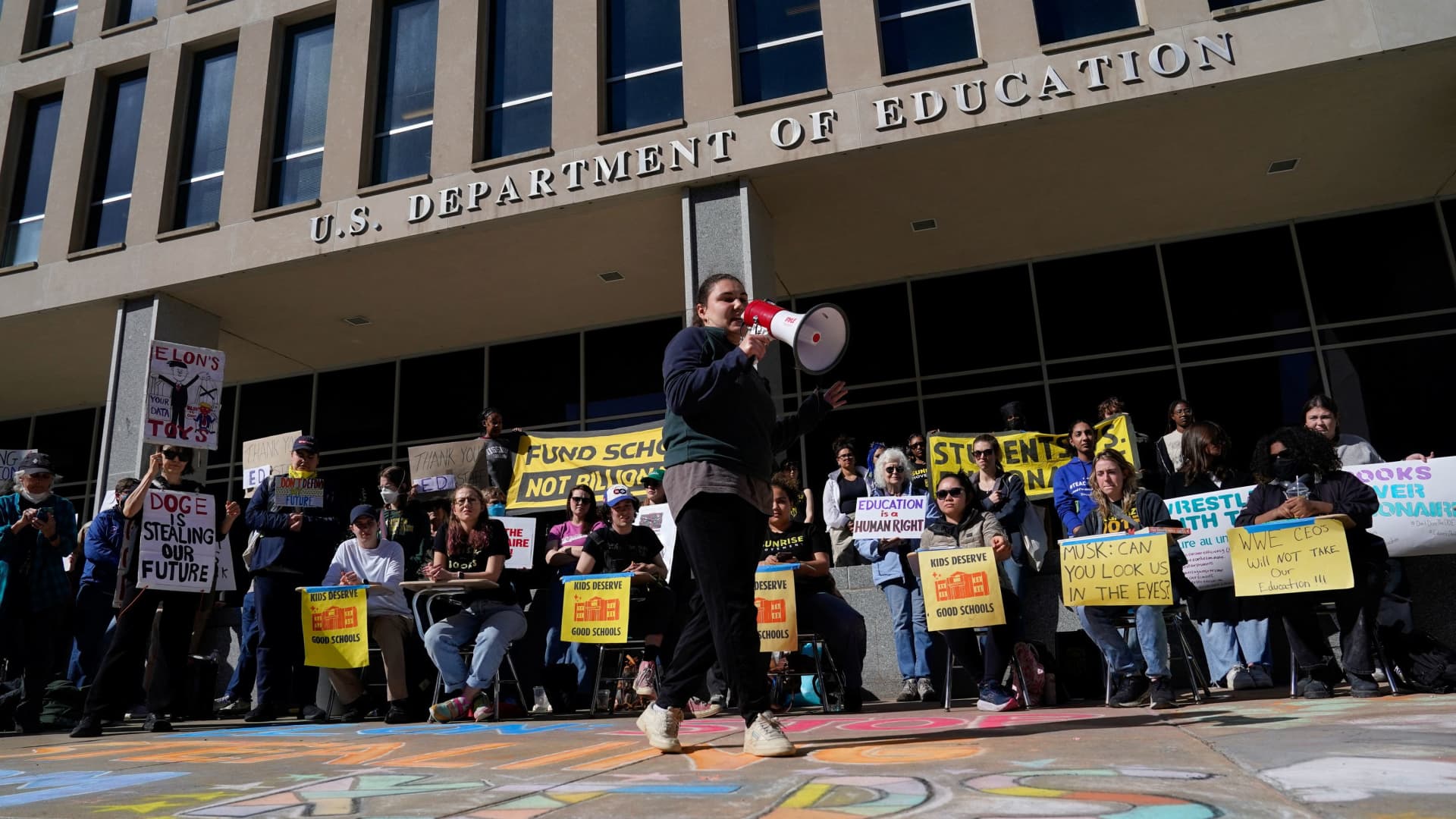George Kinder
Kinder Institute
George Kinder wants everyone to be free.
At first blush, that concept of personal fulfillment or enlightenment may seem better suited to the realms of religion or spirituality than personal finance.
But Kinder, who’s recognized as the father of the “life planning” branch of financial advice, has preached the interconnection of finance and freedom for decades.
In fact, his new book — “The Three Domains of Freedom” — is a treatise on the topic.
“There are kinds of goals that are profoundly inspiring to clients,” Kinder, who founded the Kinder Institute of Life Planning in 2003 after three decades as a financial planner and tax advisor, said in an interview.
More from Personal Finance:
Working 10-to-4 is the new 9-to-5
Taxes may be a blind spot in your investment portfolio
A recession could upend your retirement plans
He’s perhaps best known for his “three questions,” which aim to help people uncover the essence of their life goals.
“If you identify those and really paint the picture of what [someone’s] life would be like if they actually had that life, clients are on fire and they solve the financial problems pretty quickly and pretty easily,” Kinder said.
CNBC spoke with Kinder about life planning and why he thinks many people miss the point when it comes to managing their money. This interview has been edited and condensed for clarity.
‘You should be focused on your dream of freedom’
Greg Iacurci: What is the basic premise of the life planning movement?
George Kinder: The basic premise is that financial planning is about delivering a client into freedom. Every person has a dream of freedom, and they ought to be living it. And that goes for people who don’t have any money, people who are in debt, as well as people who have lots of money.
The focus shifts from money — where we have a lot of anxiety and there are a lot of tasks to do — to freedom. What does it actually look like, feel like, and what are the steps to get there?
GI: What do you mean by freedom?
GK: I think each of us has our own feeling for it, and the way we get at it is through the three questions.
If people just focus on the money, they lose track of who it is they really want to be and what it is they want to do. And often they assume, “Maybe I can’t do that until retirement, or maybe I’ll never get there. So I don’t really want to face it. I’ll just try to be more efficient around [my] money.”
The premise of life planning is, no, you should be focused on your dream of freedom, and do some of these exercises to discover what it is. And then you’ll find that the money side of it goes much smoother, because it doesn’t feel like an onerous task.
‘People get lost in the daily stuff’
GI: You think people are blindly saving money or trying to amass wealth without really considering what it’s for?
GK: Everybody I’ve met does that. This is endemic across civilization. People get lost in the daily stuff of it, and they don’t have a structure. Without really having that dream of freedom, the [financial] tasks are tough to follow.
GI: The three questions help underline what is most important to people and what they want to do with their life — it gets them thinking about how they might apply their money to furthering those goals?
GK: Exactly. It puts your eyes on the prize. People don’t know what they’re aiming at, really. I think they end up aiming at things that they read in financial journals or The Wall Street Journal or personal finance blogs. They’re thinking that they’ve got to just fix their IRA and do more budgeting. They get lost in that rather than always keeping their eyes on, “OK, this has a reason, and the reason is that I want to live this kind of life, and if I do these things [then] I can get there, and get there in relatively short order.”
George Kinder
Kinder Institute
GI: But that’s not necessarily to say that the way that people are saving is wrong, right? You hear these rules of thumb, like you should be saving at least 15% of your income towards retirement. You’re just saying to question why you’re doing that?
GK: It’s not wrong. And moreover, if you read good advice columns, or if you’ve read books or you have an advisor, you’ve got a pretty good bead on how to save and how to invest and all of that. So it’s not wrong. But the focus is off, so that you’re lost.
You said, “saving 15% for retirement.” Well, why are we using the frame “retirement”? What I would argue is a much, much more potent and appropriate term for every human being is “freedom.” And freedom might happen in a year, it might happen in six years. It doesn’t necessarily have to time with what we normally think of as retirement.
GI: Basically, don’t necessarily put off your goals and ambitions until you retire.
GK: Exactly. When we look at these things, we look at, how can we make this happen very, very shortly. Usually by “very shortly” I mean sometimes it’s within a matter of months, and is almost always within a matter of three years, and is usually within a matter of about a year and a half.
It may mean that you’re not getting what it is that you want exactly, but you’re really on the road to it, and you feel a lot of freedom from it.
For instance, if your dream is to live in the country and you’re living in the city: Maybe you do a two-week vacation every once in a while off in the country [but now] maybe you’re doing four or six weeks. Maybe you’re doing more remote work. Maybe you’re already looking at where it is you want to stay, and figuring out how, in a year or two, you can spend three months there. So you’re moving actively toward the freedom as part of the program of financial planning, of your financial life.
‘We only experience freedom in the present moment’
GI: Do you think that this is something that everyone could put into practice, or do you think this is more a luxury that people with means are better suited for? Maybe they’re able to more easily achieve that freedom financially.
GK: When we frame it in terms of financial freedom, then yes, of course, the people who have more means are more capable of it.
But I grew up in a very poor part of the country. I was born in West Virginia and lived across the border in rural Ohio. I think what you realize when you grow up with people who are not well-to-do is you realize every single one of them has a dream of freedom. Every one of them wants to live a life that is extraordinary for them.
So, I would say absolutely this is available for everyone. And the primary reason is that when you arrive at the dream of freedom, if you do it well, you get extremely energized. You get vigorous around its accomplishment. So that’s why it’s not so much about money as it is about the building of passion of who it is you really want to be.
GI: How does your new book further your work on life planning?
GK: The centerpiece of the book is giving inspiration and tips on doing your own life plan, so that you’re living [it]. The second subtitle of “The Three Domains of Freedom” is “Your Life Is Yours.” That portion of the book is dedicated to inspiring the consumer to do it themselves, and if they can’t do it themselves, then to find a fiduciary who combines these things to help with it.
There are two other elements. They may seem far afield, but they’re not really.
Why are we using the frame ‘retirement’? What I would argue is a much, much more potent and appropriate term for every human being is ‘freedom.’
George Kinder
founder of the Kinder Institute of Life Planning
We only experience freedom in the present moment. It’s the only moment we ever experience. I dedicate a third of the book to how to get mastery of the present moment itself, and mindfulness plays a big role in that. In terms of personal finance, it helps because the more that you’re not twisted and torn in the present moment, the more that you’re not struggling or neurotic in some way, the more you’re at peace and the more accessible your decisions.
And then the final third [of the book] takes the notion of “fiduciary” and applies it. What if, in addition to being able to have financial advisors that are fiduciaries, what if every institution, every corporation, every nonprofit, every government, was a fiduciary to the truth, to democracy, to the planet, to humanity? What I’m doing is saying, let’s require them to be fiduciaries, ahead of their own self-interest. And if we did that, I think it would solve the craziness that we’re in.


 Blog Post7 days ago
Blog Post7 days ago
 Economics1 week ago
Economics1 week ago
 Finance1 week ago
Finance1 week ago
 Economics1 week ago
Economics1 week ago
 Economics1 week ago
Economics1 week ago
 Personal Finance1 week ago
Personal Finance1 week ago
 Economics1 week ago
Economics1 week ago
 Accounting1 week ago
Accounting1 week ago











